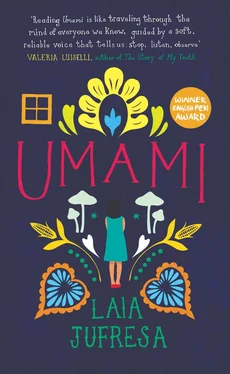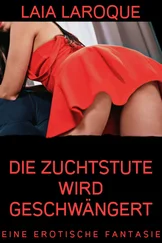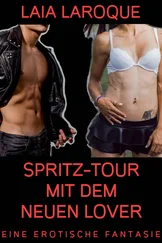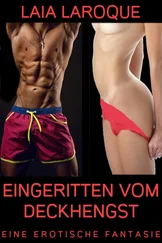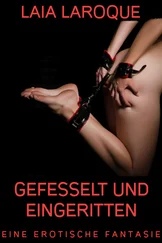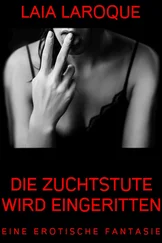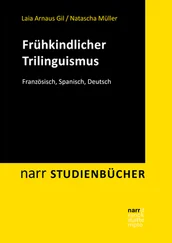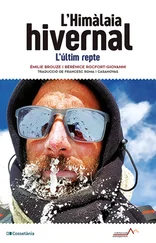‘I’d think she was pathetic,’ I said.
‘Exactly,’ he said, ‘end of discussion.’
I’ll ask again when I start high school. Safety first, Dad.
I leave the trolley by the bell in the passageway and head out of the mews again. Then I cross the street and poke my nose under the door of the house in front. The feet are still there, and I bolt it again. It’s only when I’m back at home arranging the tools out in the yard that I realize two things. One: I’m as stupid as stupid can be. Two: the feet under the door are a pair of shoes.
*
A week later I’m finally ready to throw out the old soil. Since you can’t do any work in the afternoons because of the dumb summer rains, I’ve been waking up earlier, pretty early in fact: around ten!
I emptied the planter with the shovel. It took me the best part of the week. Then I put the mega-loads of mud in trash bags, which I stacked in a corner. Now I’m hauling the bags through the mews out onto the street. One of them snags on the bell, splits open, and covers the passageway in soil. Bah, the rain will wash it away.
I’m just putting the last bag out on the street when Beto pokes his head out of a window of Sour House.
‘You’re polluting the planet, my girl,’ he calls down to me on the sidewalk.
‘ Au contraire ,’ I tell him. ‘This soil here is full of lead, whereas the one in my yard will have plants and the plants will produce oxygen!’
‘Right on,’ he says.
My mom has called Pina Pi her whole life. Pina calls my mom Aunt Linda. I also used to call Pina’s mom Aunt Chela, and she would call me Ananás, which means pineapple in French. But she doesn’t call me anything anymore because she disappeared when we were nine, and even though she’s back now, she still hasn’t shown her face around here; instead she wrote Pina an email and sent her a ticket to go visit her Mitsubishahi beach. Anyway, Beto is just Beto, and he calls us kids ‘my girl’ or ‘my boy’, even though we’re not in any way his.
‘How’s the plantation coming along?’ he asks.
‘Come down and see,’ I say. ‘Come over for a beer later. My dad always has a beer in the yard around eight.’
‘You got it.’
I think I’m pretty generous for having invited him. He must miss Pina. Although not more than I do. Beto shuts his window and I head back into the larynx feeling like a breath of fresh air: light and magnanimous.
*
I’ve got soil in my nails and hair. The new stuff is a lot softer and almost black, and as much as I try to spread it out evenly, I can’t. It’s a bit like trying to pour flour from its packet into a jar. If you squeeze the sack you can end up squashing it into clumps, and then only one side of the planter gets any soil and you have to go back and fluff it all up again with the rake. The one thing I’m really not keen on is the worms; where the heck do they all come from? Once I’m done I’ll clean the plaster around the planters. Soap, bucket, scouring pad. Mom watches me from the window, frowning.
‘What?’ I ask.
‘You’re so pretty,’ she says.
‘No I’m not,’ I say.
But that night, after my bath, I inspect myself in the mirror. Maybe I’m not so ugly these days.
*
I spend the next three weeks sowing, by which I mean that I spent one day pressing seeds into the soil and now I spend my mornings reading aloud to them, to cheer them along. That’s what Daniela did with Baby, and now she does it with the new one inside her, which we’ve already begun to call Baby II. I miss Pina like crazy, and then I don’t miss her so much. I miss my brothers too, but only because now that they’re not here to distract Mom she spends hours on the sofa with a book in her hand never turning the page. I make her iced tea with fresh mint and she takes a few sips, leaning on one elbow and barely lifting her chest, as if she were sick or something. Then she leaves the rest untouched. The ice melts. The glasses sweat. Dust has started to build up all over the house. The beds are unmade. It rains every afternoon and I really want a cat or a turtle, but when I bring it up Mom says, ‘You’re just nostalgic for camp.’
Beto often comes round to see us. I often go see Alf. Sometimes the three of us coincide in Umami and we dip our feet in the jacuzzi, eat peanuts and chat about what Beto should read to understand our obsession with milpas ; about what Alf should do with his yard; and about what I should plant in mine. Sometimes Alf wets a flannel and washes The Girls while we chat. Summer isn’t too shabby at all for grown-ups. Maybe it’s because Pina’s missing out on this that I’m not so jealous of her anymore. Some of my seeds sprout.
One day I finally ask Mom, ‘Why did you break my CD?’
She answers with a strange motion of her hand. It’s a bit like the Protestant flick, only this one ends in great big thumps on her chest.
‘What’s that supposed to mean?’ I ask.
‘It means Catholic.’
‘Who’s Catholic?’
‘Me, maybe, since I can’t sleep for the guilt.’
‘It was only a CD.’
Marina gets up off the sofa and walks to the kitchen, determined to eat something. Ever since the landlord explained to her about umami and protein, she’s been thinking she ought to eat more chicken and tomatoes. That’s what healthy people eat: chicken breasts. But the meat aisle never fails to intimidate her. It all looks too raw, too shiny and demanding. When Marina does buy food, it’s precooked and all neatly packaged: tear along the dotted line and consume before the doubt creeps in.
Her kitchen has a screen door that leads out onto the yard with the water tank. Salty and Umami have a decent sized yard, but Sour and Bitter got this sad substitute instead. And poor Sweet got no outdoor space at all, nor is it compensated like Sour and Bitter by facing out onto the street. Perhaps that’s why nobody has ever lived there and it’s only used as a music school.
A broom and the ossified dusters her mother bought, and which Marina hasn’t touched since she left, lie scattered around the water tank. There are some beer bottles, too, which Marina has every intention of taking to the bottle bank before the world comes to an end. Chihuahua’s bicycle has been there for months, propped up vertically, its flat tires removed and left draped over the axle, drooping like the titties of some emaciated old lady. Marina tries to shake the image. She’ll be sure to mention this in her next session: ‘I’ve noticed an improvement, Mr. Therapist: the idea of someone emaciated sets my teeth on edge.’ He’ll be pleased; he’s a good person.
Marina makes some calculations, leaning against the water tank: a half-plate of oats in the morning, a Yakult mid-afternoon.
‘Damn it,’ she thinks.
Then:
‘Listen.’
And then:
‘Cheese.’
Blue cheese.
Roquefort! Boy, was she into Roquefort! She used to eat it with tortillas, spread it on Wonder Bread, let it melt on spaghetti straight out of the pan in the teeming kitchen of her father’s restaurant.
‘It to-ta-lly reeks,’ her brother would say with that affected authority that made him string-all-his-words-together-very-slowly, as if by going any faster his message might be missed; as if by pausing the whole act might fall apart.
‘Go-back-to-your-room,’ he’d tell Marina those nights her dad didn’t come home, at the same time grabbing their mother’s hands to stop her from biting her fingers and nails.
It used to be her favorite thing, blue cheese. Once, at the height of his happy hour, her father put his arm around her mom’s waist and they swayed in a kind of clumsy waltz while Marina ate her spaghetti, her brother ate his — with nothing but butter on it — and her dad sang, ‘Blue cheese, you saw me standing alone…’ Mom giggled and Marina, who didn’t know the original or even understand the lyrics, felt more in awe of her dad than ever: on top of everything else, he was also a gifted composer.
Читать дальше
